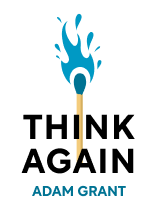

This article is an excerpt from the Shortform book guide to "Think Again" by Adam Grant. Shortform has the world's best summaries and analyses of books you should be reading.
Like this article? Sign up for a free trial here.
Would you say that your organization has a safe working environment? Why is it important to ensure psychological safety in the workplace?
Safe work cultures prioritize learning and critical thinking over profit and end results. Creating psychological safety in the workplace starts with fostering an environment where employees feel like they can take risks when interacting with others without fearing negative consequences.
With this in mind, here’s how to cultivate a sense of psychological safety in the workplace.
The Importance of Psychological Safety in the Workplace
Great ideas go unexpressed when workplaces don’t try to cultivate a sense of psychological safety—people fear the negative consequences of being wrong, so they hesitate to speak up. In such a culture, old ways of doing things go unquestioned because people are stigmatized for challenging them. When this dynamic sets in, the workplace can become wedded to old ideas and processes that clearly aren’t working anymore, while new ideas are stifled and ignored—leading the entire organization to suffer as a result.
To avoid this outcome, leaders should focus on creating psychological safety in the workplace by communicating that it’s ok to be wrong. Even better, they can openly share professional critiques that show their past failures. When leaders are open about their own shortcomings and how they are working to do better, it provides a powerful example of humility that gives employees the psychological safety to struggle and make mistakes too.
| Recover From Failure A lack of psychological safety can have effects far beyond a hesitancy to share ideas. As Brené Brown explains in Dare to Lead, a lack of psychological safety also makes employees less able to recover from failure. In a psychologically unsafe work environment where failure is stigmatized, employees avoid talking about difficult situations or their failures. This leads each employee to think that she’s the only one making mistakes—a belief that usually brings intense shame. To avoid further feelings of shame, she avoids any situations that might put her in a position to fail—stifling her creativity, motivation, and innovation. Brown says that when failure is normalized and addressed in your work environment, everyone feels safe talking about their failures and the steps they took to recover from these failures. As a result, employees more openly admit and manage their mistakes, and support one another through failures This builds failure resilience across the team—employees take risks, knowing their team will have their back if they fail. Brown notes that you can help others build shame resilience in the following ways: Recognize the physical symptoms of shame in others—people may become agitated or flushed when confronted with failure. Understanding these physical responses helps you recognize when these feelings are happening to your co-workers. Help others understand that everyone feels shame—knowing that shame and failure are universal experiences helps your co-workers realize that these feelings are normal. Sharing your experiences with others who are struggling can help them open up. Go out of your way to connect with others—shame is an isolating feeling, so reaching out to others can make them feel connected and supported. |

———End of Preview———
Like what you just read? Read the rest of the world's best book summary and analysis of Adam Grant's "Think Again" at Shortform.
Here's what you'll find in our full Think Again summary:
- Why the ability to reconsider is more important than precise knowledge
- How knowledge and expertise can narrow your thinking and limit your potential
- How to improve your ability to reconsider things in work and in life






